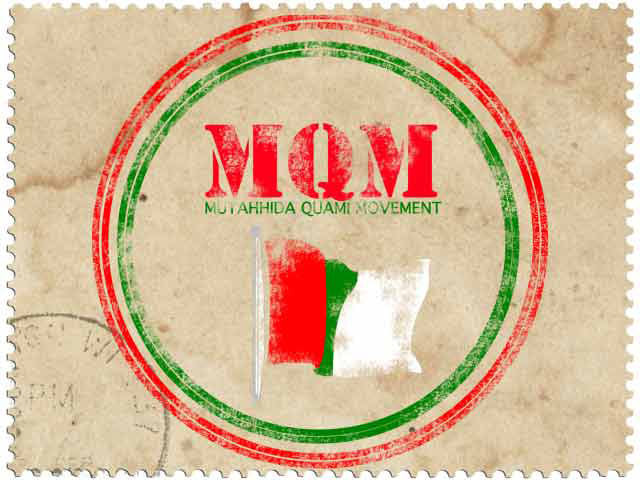Rumour has it: Will Altaf bring back the party’s zonal committees?
Party workers are waiting for their party chief to make the announcement today (Thursday).

The word around 90 is that there are going to be some big changes in the Muttahida Qaumi Movement's (MQM) organisational structure in Karachi.
Party workers and leaders are sitting tight and waiting for their party chief to make the announcement today (Thursday).
It is expected that once the party's Karachi Tanzeemi Committee (KTC) is dissolved, as announced by Altaf Hussain earlier, the party may revert to their initial set up - zonal committees.
"In the beginning, the units and sectors reported to respective zonal committees," said an official who did not wish to be named. "This committee system will most likely be revived." Party leaders, however, cannot confirm anything till a formal announcement is made.
"No one knows what Altaf Hussain is thinking or planning," they said while talking to The Express Tribune.
"Another option is that instead of reintroducing the zonal system there is a possibility of a new system being introduced where every sector will report directly to the Rabita Committee (RC)."
The party workers are rooting for the zones. "It is a tried and test system," said another party official. "Many workers want the zonal system to make a comeback. It will help with the discipline."
The early days
The initial set up of the party which was devised in 1984 - soon after the formation of the MQM, then the Mohajir Qaumi Movement, was simple.
They wanted the party chief's message to reach the people quickly.
The founding members, including Altaf Hussain, Azeem Tariq and Dr Imran Farooq, sat together and thought in great detail how this could be done.
"At the time, the Pakistan Peoples Party and Jamaat-e-Islami were active parties in the city," said a leader. "The founding members studied their party structures and then decided on how they wanted to organise the MQM."
It was decided that units would be set up at a council level with a sector and a sub-division would oversee them. Initially there were about 12 to 15 sectors, which reported directly to the zonal committees.
The city was divided in five zones - A, B, C, D and E - each zone had its own committee and a man incharge. Their prime responsibility was to collect donations, induct new members, organise rallies and help campaign during the elections.
One zone had different sectors they had to look after and report daily to a central committee.
Some of the prominent zonal incharges include - Afaq Ahmed who headed Zone A which covered areas like Landhi, Malir and Shah Faisal; and Amir Khan who looked after Zone C which includes Liaquatabad, Nazimabad, New Karachi and North Nazimabad.
This setup lasted till 1992. After the army operation against the MQM started the committees were disbanded, sector and unit offices were shut down and several workers went into hiding.
The current setup
At the moment, there are more than 200 units and 26 sectors that report to the KTC, which was formed in 2002 by the RC and is headed by an incharge.
The KTC was dissolved last May after the general elections as Altaf Hussain was displeased over the party's failure to gain votes and complaints over the leaders inefficiency.
While this is not the first time the KTC was dissolved, party workers believe that this time it might wrap up for good.
Plan of action
MQM leaders hope that if the zonal system is revived, it will benefit the party. The city, they claim, will be divided into seven to eight zones instead of just five. They said that zones are effective in getting the message across and monitoring sectors closely.
They believe that under the zonal system the party played an important role in coordinating the first local government elections in Karachi in 1987. Also in 1990, it organised one of the biggest rallies in the city on Shahrae Quaideen in which reportedly more than two million people took part.
Published in The Express Tribune, September 11th, 2014.


















COMMENTS
Comments are moderated and generally will be posted if they are on-topic and not abusive.
For more information, please see our Comments FAQ